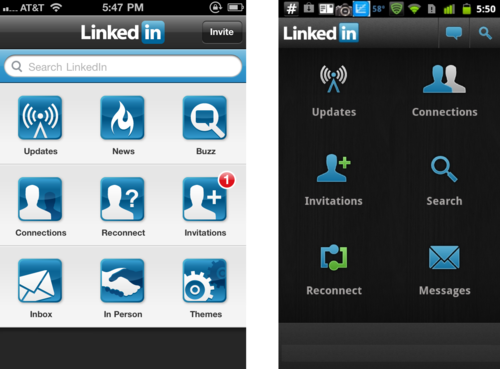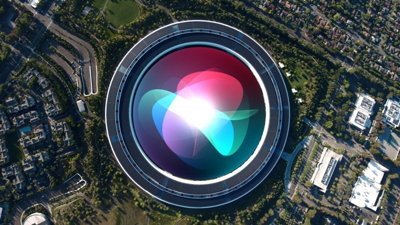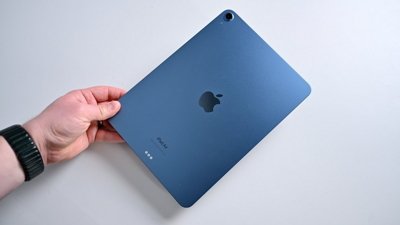Apple kills App Store number growth, focuses on fairness and app quality
In app purchase scams
The company's latest effort at curation has banned the practice of "incentivized app installs," a gimmick used by some game makers to induce players to install specific other apps in order to continue playing. The practice is similar to "offer walls" promoted by free web games that ask players to participate in offers (such as buying a product or signing up for a trial service subscription) in order to obtain in-game currency required to continue game play.
Apple has banned the practice to prevent companies from artificially distorting the popularity of apps that are only being downloaded because of the incentives. Clause 3.10 of the iOS developer license forbids developers from making any "attempt to manipulate or cheat the user reviews or chart ranking in the App Store with fake or paid reviews, or any other inappropriate methods.â€
The practice stems from an unanticipated use of Apple's own In App purchases feature, which was added to allow developers a way to monetize the development of their apps by allowing them to add additional features that can be unlocked by users, or to promote other apps in their catalog to the app's audience.
With incentivized installs, one developer pays another an install fee (usually through a middleman pay-per-install network) to induce its users to download other apps. This is used to rapidly promote a new title into iTunes' App Store rankings, a coveted position that results in exceptional visibility and exponentially higher sales.
In App purchases have also resulted in an issue involving children racking up hundreds of dollars in fees after being given an iOS app to play that contained the ability to buy in game currency or other objects. Apple provides Parental Controls to limit App Store purchasing (including in app sales), and also added new password protections in response to complaints.
Analysts worry Apple will lose download metrics
Apple's termination of the growing business behind inducing downloads of other apps has caused analysts at Xyologic to warn that "it may make Apple’s platform possibly less attractive vis-a-vis Google Android if developers can’t find a suitable alternative to offer walls."
The group issued a whitepaper (PDF) that outlines the various numbers behind the "free-to-play" games business, noting that according to its figures, 80.8 percent of all iPhone downloads in the month of March were free, and that "free-to-play games attract a wider audience than those that require an upfront payment."
The report states that "incentivized installs had become the most efficient way to get users to download apps," noting that of the 8,017 iPhone apps using in app purchases, 2,156 were games, and that that figure represented 10.8 percent of all free iPhone games in the US. That number of free games leveraging in app purchasing has rapidly increased since Apple debuted the the feature last fall.
The group also noted that, while "apps with in-app purchases still constitute a tiny minority within the App Store, they take a disproportionate share of the downloads." Thus, while only representing just over 10 percent of all free games in the App Store, those using in app purchases represented 39.9 percent of all free games downloaded.
Additionally, the group says 94 of the top 150 free games (63 percent by volume) are games using in app purchases, and that group contributes 42.17 percent of the downloads.
"The 39.9 million downloads of free iPhone games in the US may slow until further notice as many of the incentivized install marketing campaigns have now stopped," the report notes. "The revenue growth of games using in-app purchases may slow for now. This change may help to further swing momentum in Android Market’s favor. The Xyologic database already indicates 28,963 new apps debuted in Android Market while 18,787 made it into Apple’s App Store last month."
Android Market volume of free apps already larger
While Apple initially advertised downloads and library size milestones for the App Store to note how fast it was growing and how far it was ahead of competing app markets, the company has already begun talking about other competitive metrics, particularly the billions of dollars it has paid out to developers.
Google's competing Android Market has a much greater proportion of free apps, in large part because Google has strongly incentivized ad-supported apps, causing developers to refer to ad-supported free apps as the "Google Way."
But despite the fact that Android Market now lists more free titles than Apple does for the iPhone (when excluding iPad), top developers with apps on both platforms have regularly noted, as did "Angry Birds" maker Rovio, that "Apple will be the number one platform for a long time from a developer perspective, they have gotten so many things right. And they know what they are doing and they call the shots."
Actual performance figures of mobile software stores demonstrate that the revenues earned by developers are not necessarily tied to the overall quantity of the devices running a platform (the installed base or market share), nor the raw number of downloads or library size.
In February, IHS reported app market revenues that indicated Apple's vast 17x revenue lead over Android Market (despite Android devices being nearly as widely deployed, and Android Market having nearly as many free apps in its library).
The figures also noted that RIM's BlackBerry App World was beating both Nokia's Ovi and Android Market, despite similarly having a much smaller installed base and share of the smartphone market, and far fewer apps in its library. RIM currently has fewer than 20,000 apps in its store, while Nokia boasts nearly 26,000 and Android has a listing of more than 150,000.
Google's lack of curation (any Android Market apps can be listed after paying a fee, with no review process) has resulted in a large volume of titles, but has not brought with it a functional market that pays developers enough to generate quality apps, nor does it support a high quality listing of fresh and novel apps.
Instead, many mobile developers avoid Android entirely, including Epic Games, which said it focuses on Apple's iOS because "it's really the best place to make money."
Additionally, Android Market customers have complained that even Android apps from the same vendor often look and feel inferior and are missing features. One blogger has posted examples of major apps representing apps from Meebo IM, Facebook and Speedtest and LinkedIn (shown below) to demonstrate that even developers that support both platforms (and offer free apps) don't do so equally.
 Daniel Eran Dilger
Daniel Eran Dilger












 William Gallagher
William Gallagher
 Malcolm Owen
Malcolm Owen
 Amber Neely
Amber Neely

 Marko Zivkovic
Marko Zivkovic

 Andrew Orr
Andrew Orr







